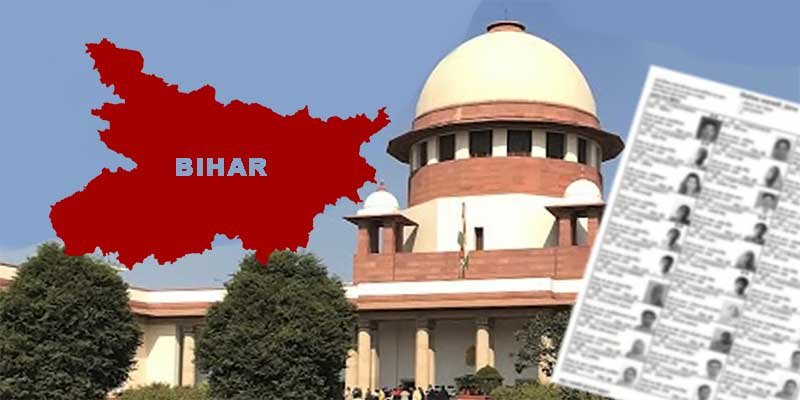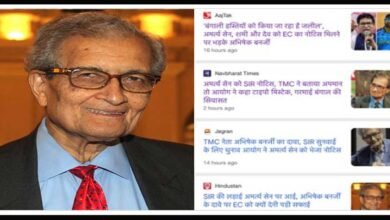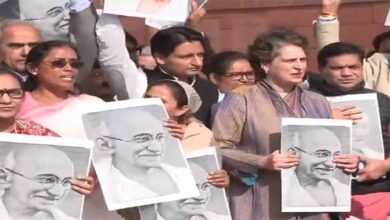Supreme Court Orders ECI to Publish List of 65 Lakh Deleted Voters in Bihar, Demands Transparency
The court ordered the ECI to upload the district-wise and booth-wise list of excluded voters on the websites of District Electoral Officers and the Chief Electoral Officer of Bihar by August 19, 2025.

NEW DELHI- In a significant ruling aimed at ensuring transparency in the electoral process, the Supreme Court of India on Thursday directed the Election Commission of India (ECI) to publish a detailed list of approximately 65 lakh voters excluded from Bihar’s draft electoral roll during the ongoing Special Intensive Revision (SIR).
The court, presided over by Justices Surya Kant and Joymalya Bagchi, mandated that the ECI disclose the reasons for each voter’s exclusion, such as death, migration, or duplicate registration, to boost public confidence in the electoral system.
The directive came during the hearing of multiple petitions challenging the Bihar SIR, including one filed by the Association for Democratic Reforms (ADR), which raised concerns over the large-scale deletion of voters from the draft electoral roll published on August 1, 2025.
The bench emphasized that the procedure must be fair, as exclusion risks disenfranchising eligible voters. “Transparency will help create voter confidence,” Justice Kant remarked, stressing that citizens should not have to rely on political parties to access information about their voting status.
The court ordered the ECI to upload the district-wise and booth-wise list of excluded voters on the websites of District Electoral Officers and the Chief Electoral Officer of Bihar by August 19, 2025. The list must be searchable by Electoral Photo Identity Card (EPIC) numbers and include specific reasons for non-inclusion.
Additionally, the ECI was instructed to display these lists physically at Panchayat Bhawans, Block Development Offices, and other local offices to ensure accessibility for those without internet access.
To further enhance transparency, the court directed the ECI to widely publicize the publication of the list through vernacular newspapers, Doordarshan, All India Radio, and official social media platforms.
The bench also addressed concerns about documentation, ordering the ECI to explicitly state in public notices that voters can submit Aadhaar cards along with other documents to reclaim their inclusion in the final electoral roll.
Also Read- VIRAL: Jaya Bachchan’s Heated Reaction to Selfie Attempt Goes Viral
This follows the court’s earlier observation that Aadhaar, while not listed among the ECI’s 11 acceptable documents, is widely available and should be considered to facilitate voter inclusion.
The ECI had previously argued that it was not legally obligated to publish a separate list of excluded voters or provide reasons for their removal, citing the Representation of the People Act, 1950, and its operational guidelines.
The commission also noted that the list of omitted voters had already been shared with booth-level agents of political parties. However, the court rejected this approach, with Justice Kant questioning, “Why should voters have to run after political parties to know their status?” The bench further dismissed objections to making the list searchable, overruling a 2018 precedent cited by the ECI, stating that accessibility was paramount.
Also Read- Rahul Gandhi Alleges ‘Massive’ Voter Fraud, Accuses Election Commission of Collusion with BJP
The court’s intervention follows concerns raised by petitioners, including allegations of procedural irregularities in the Bihar SIR. The ECI attributed the deletions to deaths (22.34 lakh), permanent migration or absence (36.28 lakh), and duplicate registrations (7.01 lakh).
Critics, including opposition parties, have labeled the exercise as a potential move to disenfranchise eligible voters ahead of Bihar’s assembly polls, prompting the court to stress “en masse inclusion” over exclusion.
The ECI has been directed to file a compliance report by August 22, 2025, when the matter is scheduled for further hearing. The court’s order is seen as a critical step toward safeguarding voter rights and ensuring accountability in the electoral process, particularly in a state known for its complex political landscape.
The ruling has sparked discussions on social media, with posts on X reflecting public sentiment about the need for transparency in voter list revisions. While some hailed the decision as a victory for democratic fairness, others expressed skepticism about the ECI’s ability to implement the directive effectively amidst what it described as “sharp political hostility.” The final electoral roll is expected to be published on September 30, 2025, following the ongoing claims and objections phase.









